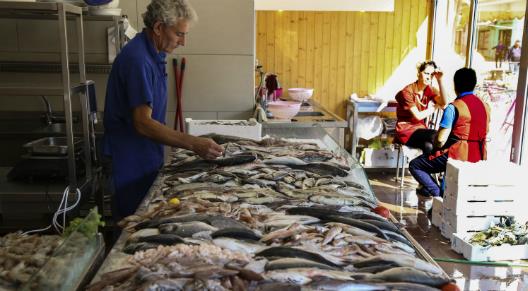Inland fisheries and aquaculture set to become a more ‘sexy’ topic

High-seas illegal fishing and depleted marine fish stocks have grabbed headlines for years, sparking public concern and prompting governments to cooperate and take action, culminating in the UN Sustainable Development Goal 14 on oceans and seas. But what about the fish and aquatic resources in lakes, rivers and freshwater fish farms?
An FAO commission dedicated to Europe’s inland fisheries and aquaculture will meet here next month, preceded by an international symposium on how inland fisheries and aquaculture can adapt to a changing climate.
“Inland fisheries are extremely important – for people’s livelihoods, for food security, and for environmental sustainability,” said Victoria Chomo, FAO senior fisheries and aquaculture officer. “But in the public eye, problems facing inland waterways are not as ‘sexy’ as saving whales and dolphins in the oceans. We need to change that perception, if we want to see our lakes and river basins – and the communities that depend on them for survival – provide resources for the next generation.”
Fish is an important source of protein and micronutrients, and FAO encourages even greater use of fish in the diets of people with low nutritional status. Many countries in the Europe and Central Asia have low per capita fish consumption, although some countries are already benefitting from FAO aquaculture development projects – to increase fish availability on domestic markets and lower the price of fish.
Effects of climate change
Climate change and extreme weather events are compounding threats to the sustainability of inland fisheries and aquaculture. While data and research on the impact on aquatic resources are still limited, FAO experts believe the entire fish value chain will be affected. Impacts – both positive and negative – will depend on geographic region and latitude, as well as on fish species and the capacity of wild populations to adapt to new conditions. An International Symposium of experts will discuss adaptation of inland fisheries and aquaculture to climate change, immediately preceding the EIFAAC session.
Members of the European Inland Fisheries and Aquaculture Advisory Commission are: Albania, Austria, Belgium, Bosnia and Herzegovina, Bulgaria, Croatia, Cyprus, Czech Republic, Denmark, Estonia, the European Union, Finland, France, Germany, Greece, Hungary, Iceland, Ireland, Israel, Italy, Latvia, Lithuania, Luxembourg, Netherlands, Norway, Poland, Portugal, Romania, Slovakia, Spain, Sweden, Switzerland, Turkey, and the United Kingdom.
21 August 2017, Budapest, Hungary
